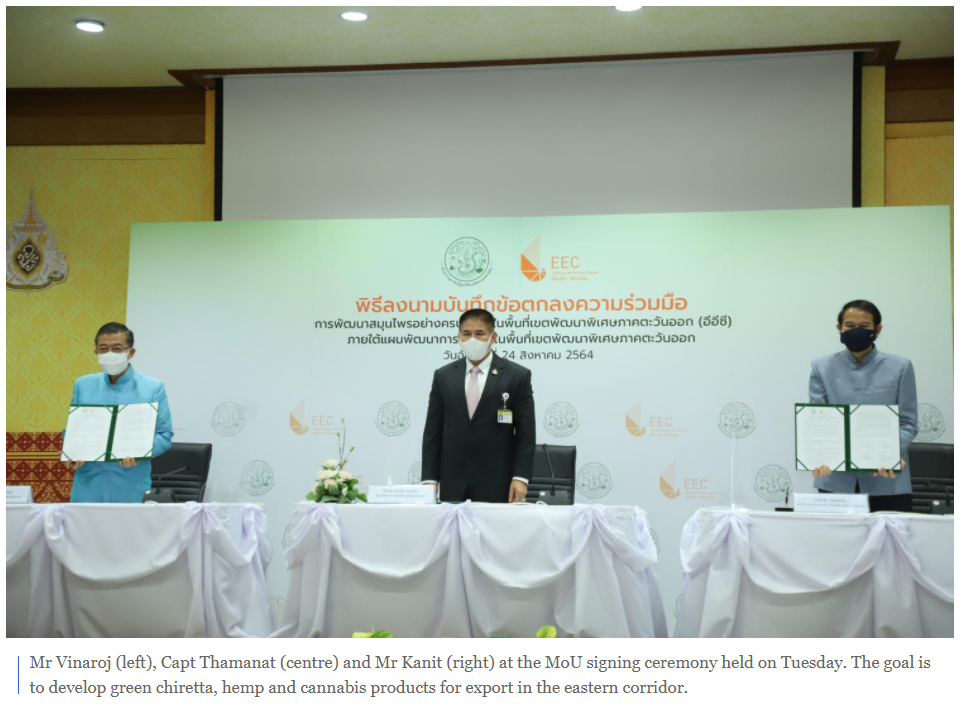Thailand: Cannabis to be a cash crop in the EEC
The government plans to turn 10,000 rai of Sor Por Kor land in three provinces that form the Eastern Economic Corridor (EEC) into herb plantations growing cannabis, hemp and fa talai jone, under a project to develop and add value to Thai agricultural products.
Fa talai jone (green chiretta) is a medicinal herb currently in the spotlight because its andrographolide substance is used to treat illness caused by Covid-19, while cannabidiol, or CBD, extracted from marijuana can be applied to treat numerous ailments.
Hemp extracts can be turned into cosmetic ingredients and its fibre can be used for weaving cloth.
The three herbs are being promoted under a memorandum of understanding (MoU) signed on Tuesday between the Agricultural Land Reform Office (Alro) and the Eastern Economic Corridor Office (EECO).
“The government believes Thai herbs will become new economic crops for export. They will drive forward the domestic economy and increase Thai farmers’ incomes,” said deputy agriculture and cooperatives minister Thamanat Prompow, who presided over the online MoU signing ceremony.
Authorities plan to allow Sor Por Kor landholders in the three provinces to plant the three herbs in order to supply raw materials for industries.
The government launched a Sor Por Kor land reform programme in 1975, with the aim of allocating plots — which are mainly located in degraded forests — to landless farmers so they can stand on their own feet.
Chachoengsao, Chon Buri and Rayong form the EEC zone on the eastern coast.
Under the auspices of the EEC scheme, the government wants to build a high-tech industrial hub.
The three herbs have the potential to help boost the domestic economy, said Capt Thamanat.
“The government will support the development of these products in upstream, mid-stream and downstream processing under a new business model,” he said.
Vinaroj Supsongsuk, secretary-general of Alro, said officials will conduct a feasibility study on business models to help farmers develop their products in the EEC.
“The study is expected to conclude in two years and the government can then start the project,” he said.
Kanit Sangsubhan, secretary-general of EECO, said the government also wants to promote traditional Thai herbs under its Eastern Fruit Corridor in Rayong.
According to the Agriculture and Cooperatives Ministry, Thailand exported traditional herbs worth 100 billion baht in 2020.
They were used in industries that make traditional medicines, food supplements and spa products.
Source: https://www.bangkokpost.com/business/2170599/cannabis-to-be-a-cash-crop-in-the-eec


 English
English




